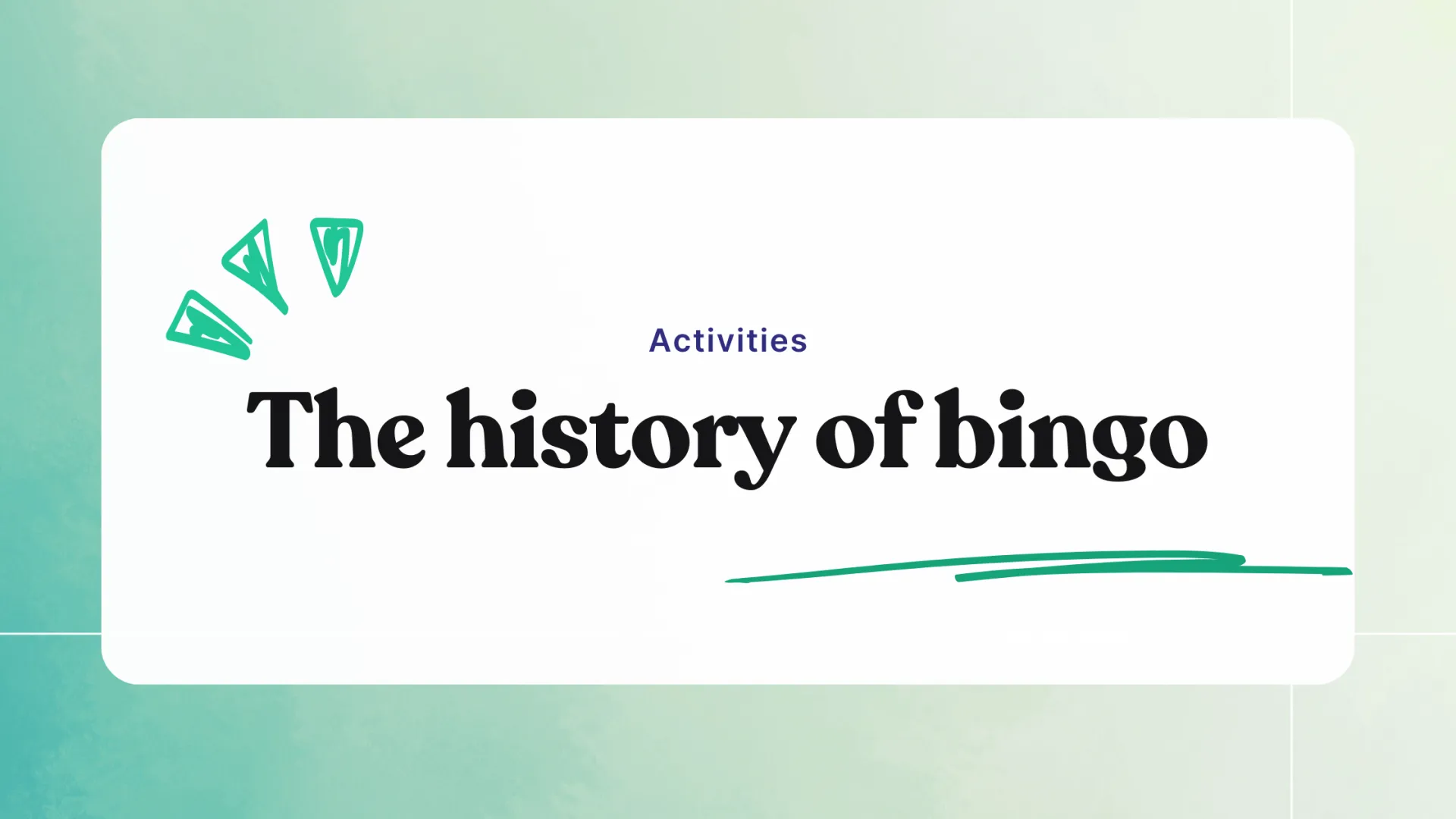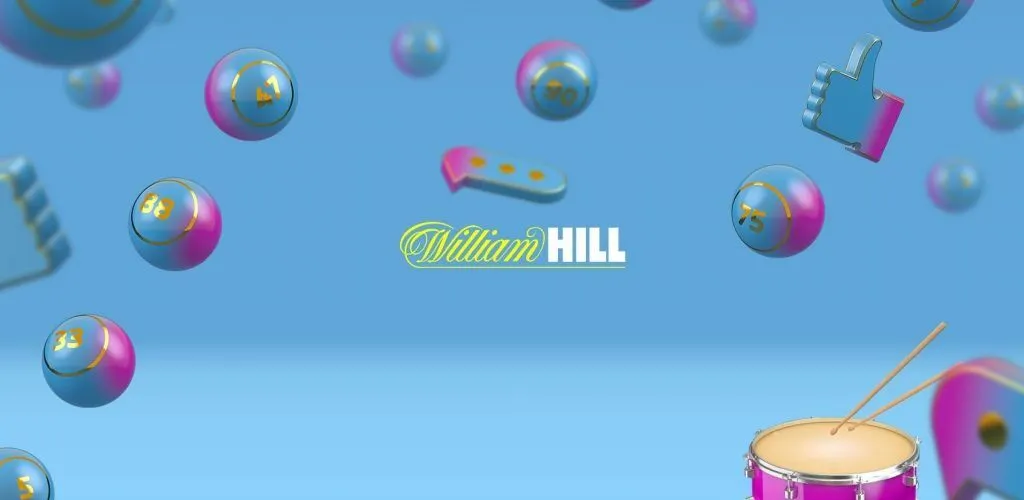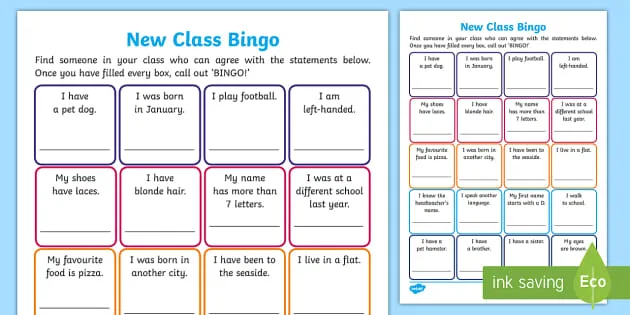If you have ever played bingo, either at a local hall or online, you may have noticed that many players call out numbers using colorful and often bizarre nicknames. From “two little ducks” to “knock at the door,” these nicknames add an element of fun and excitement to the game, making it more than just a simple number drawing. But have you ever wondered where these nicknames come from? Or how many of them exist?
In this comprehensive guide, we will dive into the world of bingo nicknames and explore their origins and meanings. We will also take a look at some popular variations of bingo and the different nicknames associated with them. So buckle up and get ready for a journey through the fascinating world of bingo lingo.
History of Bingo Nicknames: Tracing Back to the 18th Century

Bingo as we know it today has been around since the early 20th century. However, the concept of calling out numbers with corresponding nicknames can be traced back even further to the 18th century in Italy. The precursor to modern-day bingo was a lottery game called “Lo Giuoco del Lotto d’Italia,” which used cards with numbered squares, much like bingo cards.
During the 19th century, the French embraced a similar game called “Le Lotto,” which was played by the wealthy class as a means of entertainment. This game became increasingly popular across Europe, and by the 1920s, it made its way to the United States, where it was primarily played at carnivals and county fairs.
It wasn’t until 1929 when Edwin S. Lowe, a toy salesman from New York, discovered the game at a carnival outside Atlanta. Fascinated by the game’s potential, he brought it back to New York, where he introduced it to his friends. The game was an instant hit, and soon Lowe started producing his own version of the game, which he called “Beano.”
According to legend, during one of these early games, a lady got so excited when she won that she yelled out “Bingo” instead of “Beano,” and the name stuck. However, this claim has been dismissed by many, including Lowe himself, who stated in an interview that the name was chosen randomly.
Regardless of its origins, the game of bingo quickly gained popularity across the United States, and with it came the emergence of bingo nicknames. These nicknames were used to make the game more exciting and to help players keep track of the numbers being called. Over time, the game spread to other parts of the world, each region adding their own unique set of bingo nicknames.
Types of Bingo and Their Nicknames
As the game of bingo evolved, different variations emerged, each with its own set of rules and bingo nicknames. Let’s take a look at some of the most popular types of bingo and their associated nicknames.
1. 75-Ball Bingo
75-ball bingo is the most common variation of bingo played in North America. It uses a 5×5 grid card with the center square marked as a free space. Each column is labeled with the letters B-I-N-G-O, and numbers are called out from a range of 1-75. Here are some popular nicknames associated with 75-ball bingo:
- Two Little Ducks (22): This nickname comes from the shape of two ducks swimming, which resembles the number 22 on a bingo card.
- Knock at the Door (54): This nickname refers to the shape of the number five, which looks like a door, and the number four, which resembles a knocker.
- Dirty Gertie (30): This nickname is derived from the rhyme “dirty Gertie from Thirty,” which has no specific meaning but adds a fun touch to the game.
- Key of the Door (21): Traditionally, turning 21 marks an important milestone in many cultures. This nickname represents the key to adulthood and independence.
- Droopy Drawers (44): This nickname is based on the shape of the number four, which resembles a pair of pants with droopy drawers.
2. 90-Ball Bingo
90-ball bingo is the most popular variation of the game in the United Kingdom and Australia. It uses a 9×3 grid card with three rows and nine columns, making it the largest bingo card used in any variation of the game. Numbers are called out from a range of 1-90, and there are three chances to win in each game. Here are some popular nicknames associated with 90-ball bingo:
- Cup of Tea (83): In the UK, having a cup of tea is a daily ritual for many, so it’s no surprise that this nickname is associated with the number 83.
- Two Fat Ladies (88): This nickname comes from the fact that the number eight looks like two ladies standing side by side.
- Legs Eleven (11): This nickname refers to the shape of the number one, which resembles a pair of legs.
- Halfway There (45): This nickname simply means that you’re halfway to completing a full house.
- Top of the Shop (90): This is often the last number called out in a game of 90-ball bingo, indicating that someone has won the highest possible prize.
3. Speed Bingo
As the name suggests, speed bingo is a faster version of the traditional game. Numbers are called out at a much quicker pace, giving players less time to mark their cards. This variation of bingo is popular in online bingo games and is also known as “snap bingo.” Here are some popular nicknames associated with speed bingo:
- Tick Tock (9): This nickname refers to the ticking of a clock, indicating the quick pace of the game.
- Whip Around (21): In this fast-paced game, numbers are called out in quick succession, making it feel like they are whipping around the room.
- High Five (55): In speed bingo, there is no time to waste celebrating a win. So when someone wins on the number 55, players often just give a quick high five and continue playing.
- Six Pack (6): This nickname refers to the shape of the number six, which resembles a pack of beers.
- On Your Knees (43): This nickname is based on the rhyme “on your knees, all the fours.”
4. Bingo Bonanza
Bingo bonanza is a variation of the traditional game that has gained popularity in recent years. It’s played on a large screen or monitor, with players using electronic devices to mark off their numbers. This version of bingo features colorful animations and sound effects, making it more visually appealing and exciting. Here are some popular nicknames associated with bingo bonanza:
- Lucky Seven (7): This nickname is derived from the phrase “lucky seven,” which is often associated with good luck and fortune.
- Backtrack Betty (28): This nickname comes from the rhyme “In a state, over weight, 28” and adds a fun twist to the game.
- Winnie the Pooh (42): This nickname is based on the character Winnie the Pooh and his famous catchphrase “Oh, bother.”
- Time for Tea (3): When the number three is called out in bingo bonanza, it triggers a special time for tea bonus round, adding an extra element of fun to the game.
- Dancing Queen (17): This nickname refers to the popular song by ABBA and adds a musical touch to the game.
The Fascinating World of Bingo Nicknames

Now that we have explored the different types of bingo and their associated nicknames, let’s take a deeper dive into the fascinating world of bingo lingo. Here are some interesting facts and trivia about bingo nicknames:
1. Some Nicknames Have Multiple Meanings
One of the most unique aspects of bingo nicknames is that many of them have multiple meanings depending on the region or culture. For example, the number one is often called “Kelly’s Eye” in the UK, while in Australia, it goes by “At the Beginning.” Similarly, the number 22 is known as “Two Little Ducks” in the UK, but in Australia, it’s called “Quack Quack.”
2. They Have Historical Significance
Many bingo nicknames have historical significance, with some dating back centuries. For instance, the number 88 is called “Two Fat Ladies” because the two number eights resemble two chubby women standing side by side. However, this nickname also has a darker history and has been linked to the German Nazi party, who used the term “Heil Hitler” to represent the letters H (8th letter of the alphabet) and H (again the 8th letter).
3. They Are Based on Visual Similarities
A lot of bingo nicknames are based on visual similarities between the number and an object or shape. For example, the number 11 is called “Legs Eleven,” as the number resembles a pair of legs. Similarly, the number 69 is known as “Meal for Two” or “The French Connection” because of the visual similarity between the numbers and a couple’s intimate position.
4. They Are Associated with Superstitions
In some cultures, certain bingo nicknames are considered lucky or unlucky. For example, in the UK, the number seven is often called “Lucky Seven,” as it is believed to bring good luck. On the other hand, the number 13 is considered unlucky by many and goes by names such as “Unlucky for Some” or “Baker’s Dozen.”
5. They Can Be Creative and Humorous
One of the most enjoyable aspects of bingo nicknames is their creativity and humor. Many nicknames are based on rhymes, puns, and plays on words, adding a fun and lighthearted element to the game. Some examples include “Doctor’s Orders” for the number nine, referring to the shape of the number resembling a stethoscope, or “Halfway There” for the number 45, indicating that you’re halfway to completing a full house.
How to Create Your Own Bingo Nicknames

Now that you have learned about the different types of bingo and their associated nicknames, you may be wondering how to come up with your own set of unique bingo nicknames. Here are some tips to get you started:
- Think Outside the Box: Don’t limit yourself to just rhymes or obvious visual similarities. Get creative and think outside the box to come up with unique and humorous nicknames.
- Consider Your Audience: When coming up with bingo nicknames, keep your audience in mind. If you’re playing with kids, you may want to steer clear of any inappropriate or offensive nicknames.
- Take Inspiration from Others: Look at existing bingo nicknames for inspiration and put your own spin on them. You can also ask friends and family to help you come up with new nicknames.
- Make It Personal: Incorporate personal touches, such as names of family members or inside jokes, to make the bingo game more meaningful and fun.
The Impact of Bingo Nicknames on Pop Culture
Over the years, bingo nicknames have become an integral part of pop culture, making appearances in movies, TV shows, books, and even music. Here are some popular instances where bingo nicknames have been referenced:
- In the movie “Airplane!” (1980), a character played by Leslie Nielsen calls out bingo numbers using nicknames such as “Legs Eleven” and “Unlucky for Some.”
- In the TV show “The Simpsons,” there is an episode called “Bingo Hall of Death,” where the characters play bingo and use nicknames like “One Little Duck” and “Two Fat Ladies.”
- In the book “Bingo Night at the Fire Hall: Rediscovering Life in an American Village” by Barbara Holland, the author shares her experiences playing bingo at her local fire hall and references popular bingo nicknames throughout the book.
- ABBA’s hit song “Dancing Queen” has a line that goes, “Friday night and the lights are low, looking out for the place to go, where they play the right music, getting in the swing, you come to look for a king.” The number 17 is referred to as “Dancing Queen” in bingo lingo, hence the mention in the song.
Conclusion: Keep the Fun and Tradition Alive with Bingo Nicknames
In conclusion, bingo nicknames are more than just a means to call out numbers in the game. They add a sense of tradition, excitement, and fun to what could otherwise be a mundane activity. These nicknames also reflect the diverse cultures and regions where the game is played and showcase the creativity and humor of bingo players.
So the next time you’re playing bingo, remember to use these colorful nicknames and keep the spirit of this beloved game alive. And who knows, you may even come up with some unique and hilarious nicknames of your own. Happy playing!